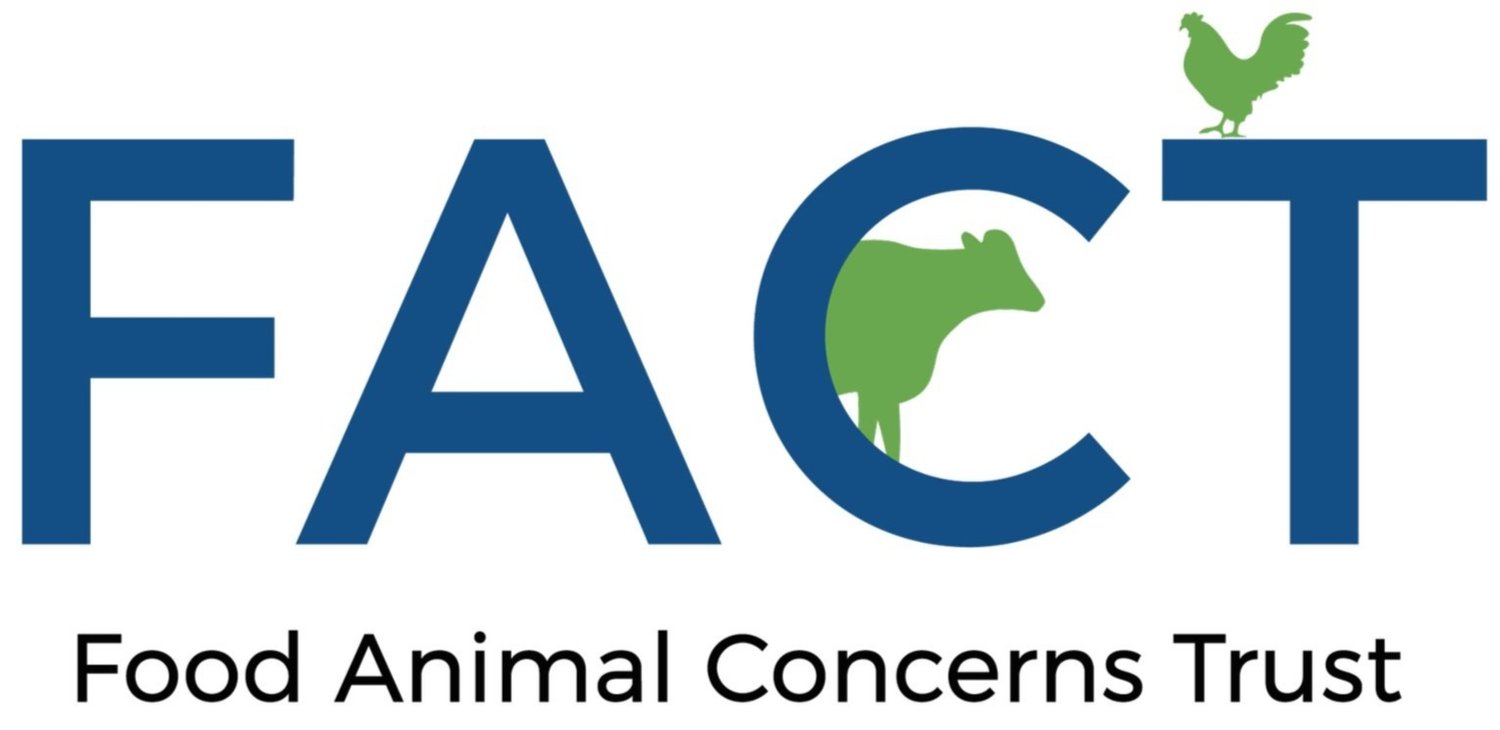FACT Position Paper on Climate Change and Animal Agriculture
Executive Summary
We must transform how we produce food in order to address the climate crisis. This means shifting away from the energy-intensive and harmful industrial system of raising animals. It requires holding all polluters accountable, including factory farms. Finally, it must address the centuries of racial injustice that have created the current system of farming.
Changing weather patterns are impacting all of us. Farmers are facing many challenges when dealing with volatile weather. Overall, extreme temperatures can be hard on the animals that live outdoors, and on the farmers and farm workers who work hard to keep their animals safe and healthy. Extreme storms, wildfires, and drought are all making it more difficult to be a farmer or rancher. Yet, farmers and ranchers are finding ways to be resilient. Many of the methods adopted by farmers and ranchers can help improve the environment and combat climate change by creating healthy ecosystems that include animals raised for food. They can reduce reliance on fossil fuels, reduce pollution, and create healthy soils. Regenerative approaches to farming can return carbon to the earth and return lands to permanent cover instead of tilled fields. Regenerative approaches to raising animals are healthier for animals and reduce the need for antibiotics, which is driving the public health crisis of antibiotic resistance.
Solutions to climate change must be rooted in justice so that all communities can thrive and none are sacrificed
Many key solutions to climate change in agriculture, such as agroforestry and regionally appropriate highly managed pasture, come from Indigenous communities that have created systems to produce food and manage resources that maintain their productivity for centuries. This stands in contrast to the conventional agriculture system that is helping drive the world toward a climate crisis. At the same time, Indigenous communities have been stripped of their land and resources and Indigenous agricultural knowledge has been actively suppressed. Going forward, efforts to mitigate climate change should actively address this history and take care to stop the extractive process that has so greatly harmed Indigenous communities. Supporting Indigenous sovereignty should be part of addressing climate change.
There are good, positive alternatives to factory farming
One of FACT’s guiding principles is that all farm animals deserve to be cared for in a healthy and humane manner with compassion and respect. To achieve this, we partner with and invest in livestock and poultry farmers to help them raise their animals outdoors on well-managed pasture.
Many animal welfare benefits are associated with regenerative, pasture-based systems. Animals living and cared for on well-managed pasture can move freely and engage in natural behaviors. Pasture-raised animals have also exhibited less stress, disease, and lameness, as well as greater fertility and fewer reproductive problems.
Policy recommendations
Some policy recommendations to address climate change, including provisions in the Agriculture Resilience Act are listed below:
Increase support for pasture-based animal agriculture, including regenerative grazing, that is consistent with permanent ground cover.
Research into soil health in grazing systems should holistically look at animal health, welfare, and antibiotic use.
Support common sense regulation of pollution, including greenhouse gas emissions and water pollution generated by factory farms.
Efforts to address climate change should not further entrench the current industrial agricultural system.
Policies should not reward factory farms and should not support factory farm gas and pollution trading schemes.
Efforts to address climate change should address inequities in the food system, and should include action to promote Tribal food sovereignty.
Toward a More Humane, Environmentally Friendly Agriculture
To achieve our vision that all animals will be raised in a humane and healthy manner and that everyone will have access to healthy food, we need to first stop raising animals in factory farms. This inevitably will lead to less, and healthier meat being produced. Americans have the highest annual meat consumption per capita in the world (Statista, 2018 – https://www.statista.com/chart/3707/the-countries-that-eat-the-most-meat/). Eating less but healthier meat is good for people and good for the planet. Raising animals for food sustainably, as well as growing all of our food sustainably, will create an agricultural system that is regenerative and a partner in combating climate change. This is the agricultural transformation that we envision at FACT. This is the way forward toward a more humane, environmentally friendly food system that benefits the farmers, the farm animals, the consumers, and the planet.
Read FACT’s complete Climate Change Position Paper here.
Photos From Top: Magoffin Family Ranch in Willcox, Arizona, Hiddendale Farm in Turtle Lake, North Dakota, and All Grass Farms in Dundee, Illinois. These are all examples of farms and ranches using climate-smart practices to build resiliency in the face of unpredictable, extreme weather events.



